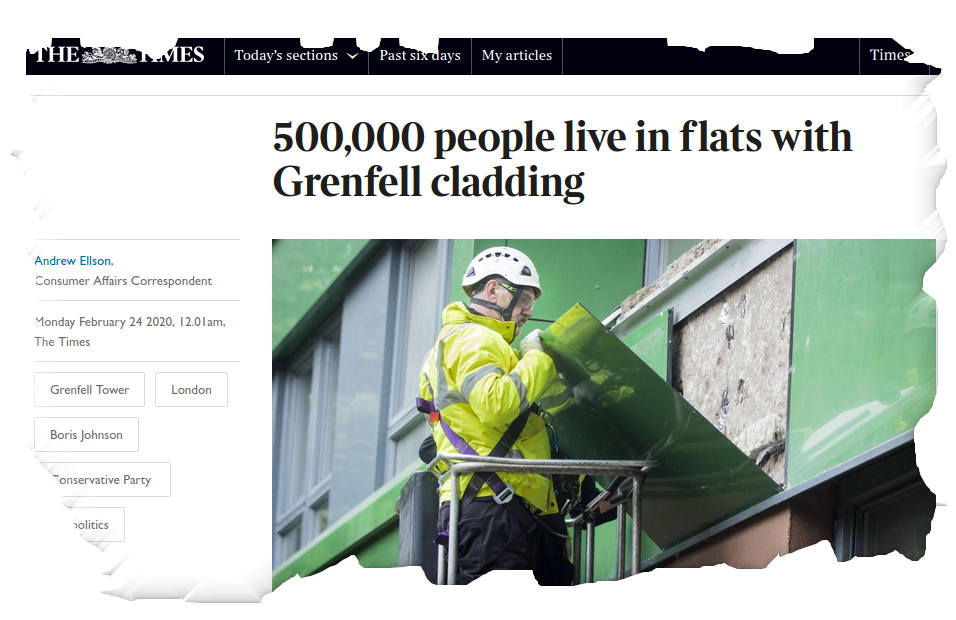
The Times claims 500,000 people are living in flats with combustible cladding.
This figure is based on findings from the Association of Residential Managing Agents.
Andrew Ellson, of The Times, writes:
Many of the companies that made the cladding or applied it have gone bust. In a few cases developers and warranty schemes are paying for repairs. Some freeholders and managing agents have also agreed to help with bills or lend the cash for repairs. The Association of Residential Managing Agents has conducted an analysis of the buildings managed by its members. Using a sample of the largest properties, it has established that a quarter of apartment buildings with 50 units or more have unsafe cladding. This equates to 1,375 developments that are home to 550,000 people.
In a letter to the chancellor, leaseholders, freeholders and managing agents say: “Building safety policy, dating back decades and overseen by governments of all political colours, has failed in its totality. Why should homeowners pay the price for such a systemic failure? The government deserves credit for funding Grenfell-style cladding remediation, but the problem is much wider than this and that funding doesn’t go far enough. This new government now has a golden opportunity to right the wrongs of the past and rescue the hundreds of thousands of worried and vulnerable residents across the country.”
Sebastian O’Kelly, of the Leasehold Knowledge Partnership, a charity that advises flat owners, said: “The flammable cladding crisis is the worst building safety scandal in modern history. The government must help find solutions rather than just telling everyone these are complex problems.”
500,000 people live in flats with Grenfell cladding
Flammable cladding is the biggest safety scandal in modern building history and more than half a million people live in tall properties in danger of burning down, according to research seen by The Times. One in four large residential developments has some form of unsafe cladding or insulation, according to safety tests since the Grenfell fire, the study suggests.





 Why hasn’t EWS1 restarted the market in flats caught in the cladding scandal?
Why hasn’t EWS1 restarted the market in flats caught in the cladding scandal?





















